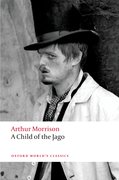Timeliness, timelessness, and the boy with no birthdays
By Geraldine McCaughrean
By Geraldine McCaughrean
As Captain Scott sat in his tent in the Antarctic in 1912, pinioned between the dead bodies of Birdie and Uncle Bill, he wrote countless valedictory notes to people he would never see again, in places half a world away. One was to the godfather of his son, expressing his love and admiration for the man and asking him to look after the boy. A hundred years ago that letter was lying unread in the death tent. But eventually, of course, it was delivered – to J. M. Barrie, foremost playwright and author of his day.









